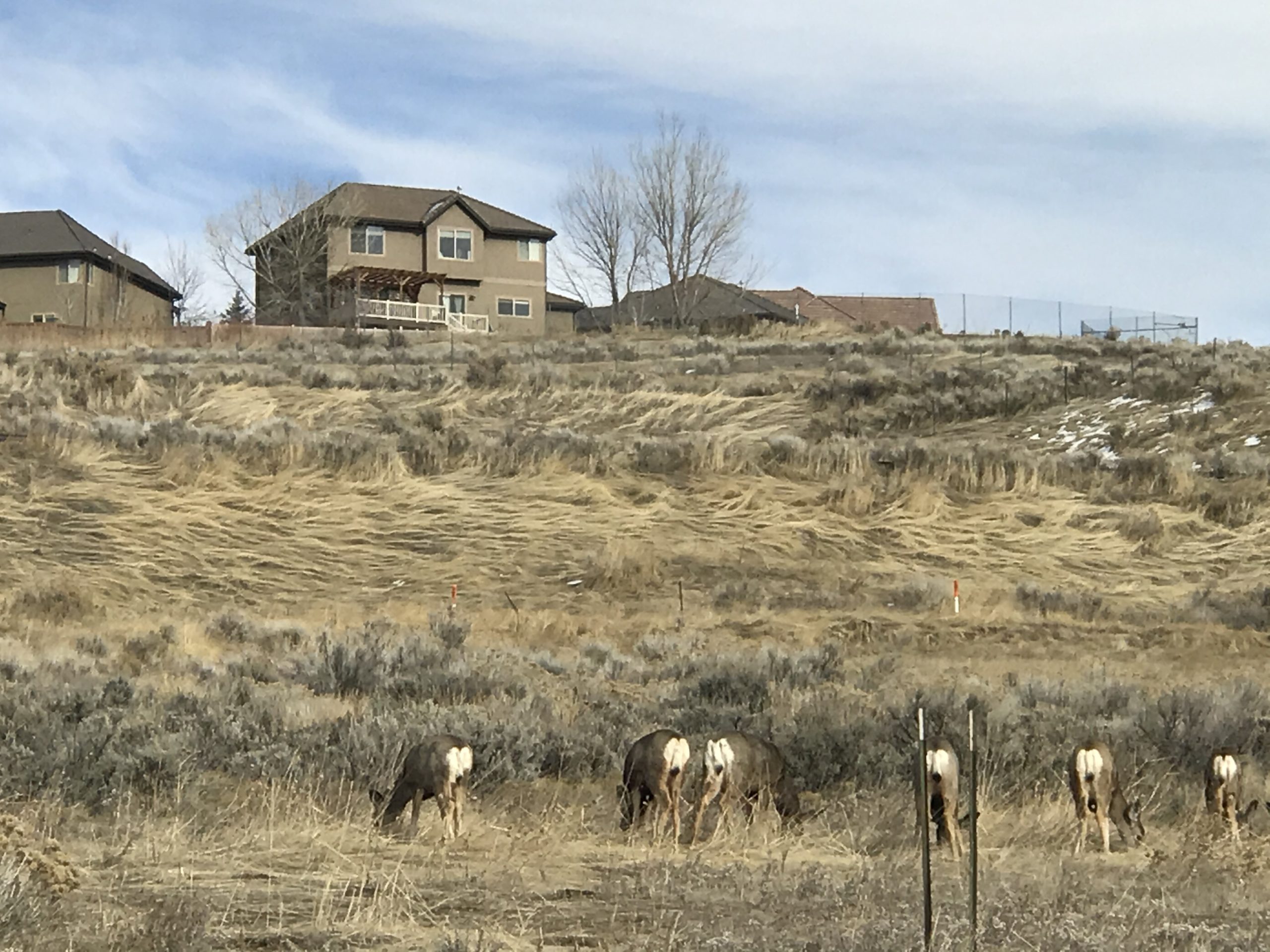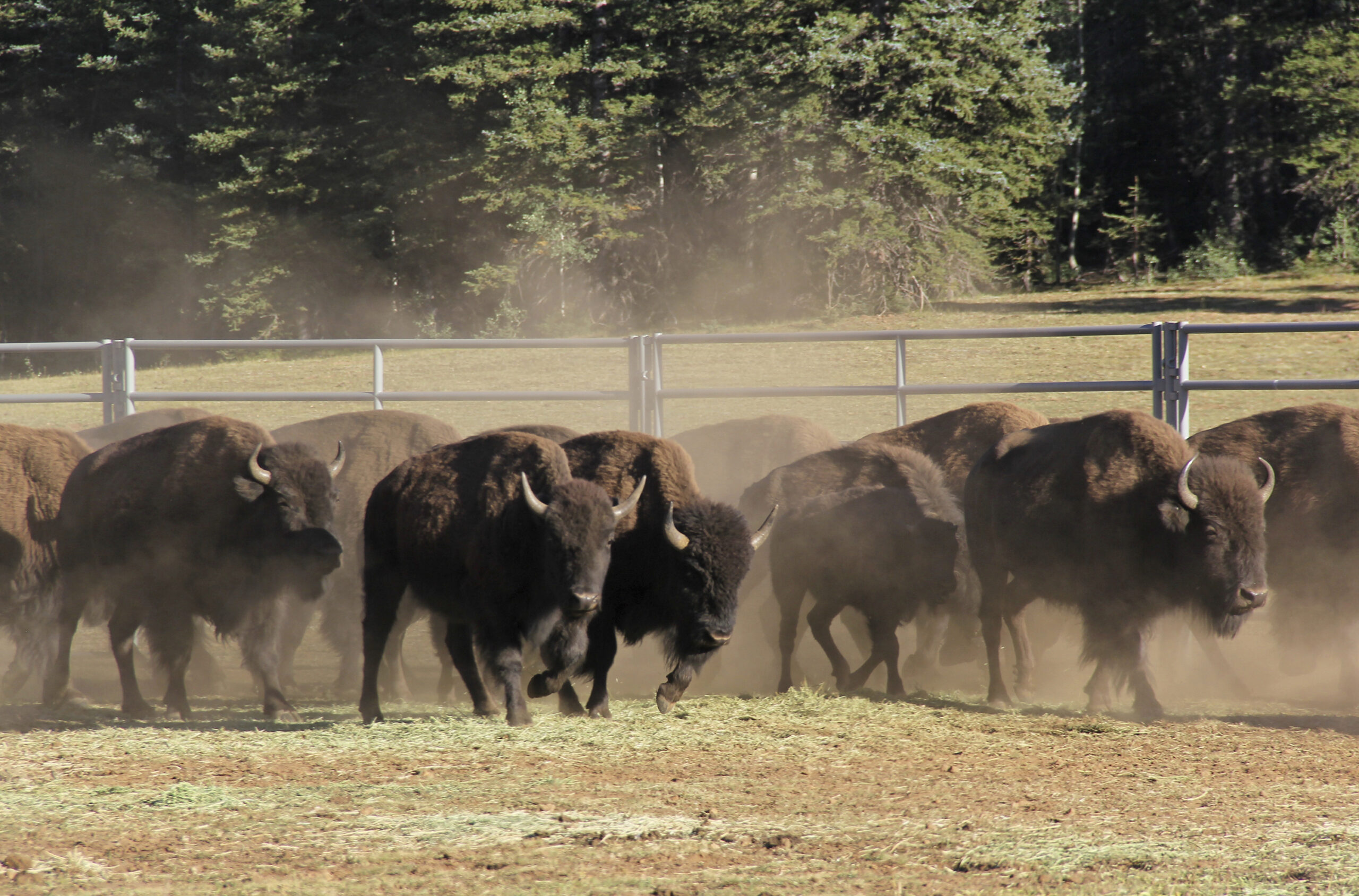ST. GEORGE — Each year, the state of Utah issues hundreds of thousands of hunting and fishing permits allowing the harvest of millions of pounds of game meat.

The state relies on hunting for the management of many species, but when the efforts of private citizens fall short, state and federal officials step in to either relocate or kill what they determine as problem animals. To avoid a conflict of interest, wildlife managers and their immediate families are not allowed to keep those animal remains – so what happens to meat when the hunter can’t take it home?
Cody Evans, landowner specialist with the Utah Division of Wildlife Resources, said the answer to that question is simple: you give it away to any interested families or individuals nearby.
“We try to donate every piece of meat that we can,” Evans said. “We call around and make sure that we’ve got people to donate the meat to, and if we only have three people we’re going to donate to that night then we only shoot three deer. It’s a really good program to get meat out to people and to not waste the resource.”
In fact, the state wildlife agency manages a game meat donation program that allows residents to sign up and receive meat from wild game that are euthanized or poached. Donations are distributed on a first-come, first-serve basis tied to the sign-up date and proximity to the location of the hunt.
“We do it for a couple different reasons: to help protect agricultural land and to reduce the population of resident deer herds,” Evans said. “Residential deer don’t migrate. They’re born or reside in city limits or agricultural fields, so they’re not huntable and they do more damage than they help an area.”

Game managers remove a combined total of 30-40 deer each year in Washington County and Iron County and about 5-10 elk primarily in Iron County, Evans said. These depredation hunts are often carried out at night, and wildlife officials try to deliver the animal remains as quickly as possible.
According to the Utah Division of Wildlife, animals removed by game officials are only field-dressed, meaning entrails are removed for safe transport and temporary storage. Recipients are in charge of processing the animal themselves or arranging for a butcher to prepare the meat.
The state donation program isn’t limited to deer and elk. The online sign-up sheet includes a place to indicate interest in receiving pronghorn, fish, game birds and even bison if they become available.
When aquatics biologists conduct surveys of fisheries that require harvest and prevent catch and release, they say they do their best to find people willing to make use of the meat.
“People are always interested in what we’re doing, so we tend to gather a crowd and as that crowd shows up we can give the fish away and get rid of them that way,” said Richard Hepworth, aquatics manager for the DWR’s Southern Region Office.
The total catch and the types of fish caught vary widely between individual water bodies and on the methods used for a given survey. In the case of Lake Powell where surveys are conducted annually using gill nets, officials regularly catch, measure and attempt to donate over a thousand fish in a two-week period.
“We do our best to clean and filet the fish because we found that if we don’t filet them then it’s really hard to give them away,” Hepworth said. “In most cases, we’re giving them away to people with fishing licenses, and depending on where we’re at we can give out donation slips that allow them to legally possess the fish. In other situations, we give them to people with fishing licenses but it counts against their daily limit.”

Finally, there are rare occasions where bison or bighorn sheep come into conflict with farmers and ranchers or are victims of poaching, in which case state wildlife officials can rely on the donation system to potentially find an interested recipient.
Wild bison are quite rare in Utah, isolated in herds that roam either on Antelope Island in the Great Salt Lake or in the remote Henry Mountains of Garfield County. Much closer are the bison at the North Rim of the Grand Canyon, where game officials lethally removed five of the gargantuan bovines in 2021.
Meat and other culturally significant parts of the bison were donated to Native American tribes associated with the Grand Canyon region.
Evans said a similar situation occurred in 2019 when a pair of Bighorn sheep became trapped on a ledge near Lake Powell. The sheep had to be put down, but their remains were donated to the Navajo Nation as part of a partnership between the state and the tribal government.
Whether you’re interested in venison, turkey or bass – the state of Utah is looking for willing recipients to make sure the meat goes to good use. The statewide donation list resets each year, and once an applicant receives a donation they will be removed from the list and must sign up again the following year.
“It’s for everybody,” Evans said. “People should be aware that they can sign up because we do try to donate as much as we can. And It helps us out quite a bit if we’re looking to donate something and we have a lot of options to do so.”
Copyright St. George News, SaintGeorgeUtah.com LLC, 2021, all rights reserved.